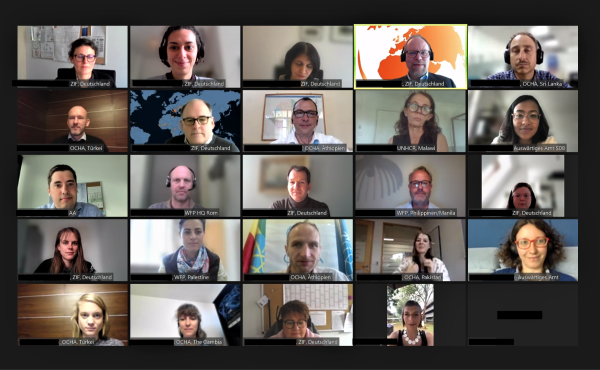Everyday life in humanitarian operations: Reports from ZIF deployees

OCHA estimates that 339 million people will be in need of humanitarian assistance this year. Climate change impacts millions of people's humanitarian needs. Over the past four years, the number of people at risk of starvation has increased. Countries such as Afghanistan, Ethiopia, Haiti, Somalia, South Sudan and Yemen have been particularly hit hard. The number of people displaced from their homes worldwide exceeds 100 million. The COVID pandemic has deepened poverty levels worldwide. New humanitarian disasters such as the earthquakes in Turkey and Syria, cholera outbreaks in nearly 30 countries, devastating effects of Cyclone Freddy in Madagascar, Malawi, and Mozambique, famine and drought in countries in the Horn of Africa, and the Russian war of aggression against Ukraine are exacerbating the global humanitarian situation.
Responding to these complex, often protracted crises and supporting the affected people requires flexible, responsible and technically skilled personnel. Deployments to humanitarian missions of UNOCHA, UNICEF, WHO, UNHCR and WFP are therefore a concrete and important contribution of German humanitarian aid. Germany is the world's second-largest.
Currently, 13 ZIF humanitarian experts are deployed to short-term operations in Ethiopia, Gambia, Kenya, Italy, Malawi, Mozambique, Pakistan, Palestine, the Philippines, Sri Lanka, and Turkey. These secondments take place within the framework of the Standby Partnership mechanism.
On April 5, 2023, 12 experts, and colleagues from the German Federal Foreign Office and ZIF discussed the challenges and opportunities of current humanitarian operations. Special attention was given to the topics of partner coordination, gender-sensitive humanitarian assistance, implementation of the Humanitarian-Development-Peace Nexus, and capacity development.